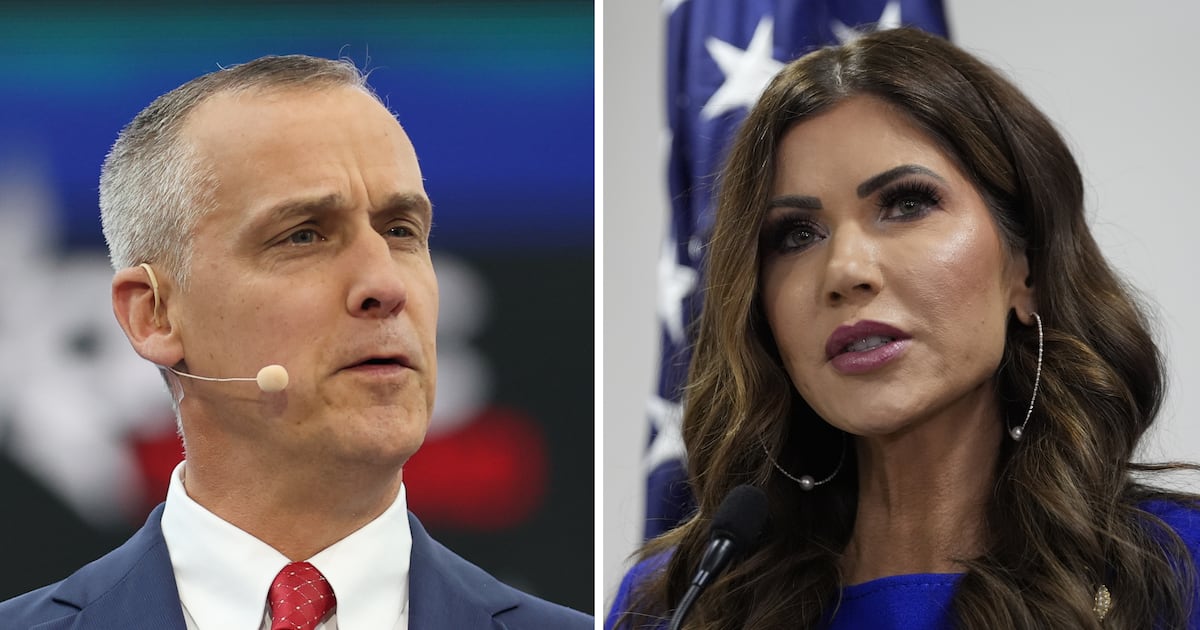Katie Holmes may often have seemed like a doe in the footlights during her marriage to Tom Cruise. But one thing has become increasingly clear in the days since her Mission Impossible stealth court filing: the 33-year-old actress is no naïf when it comes to divorce law.

Child custody battles among super-wealthy celebrities can be particularly bruising and protracted. But Holmes’s intricate plan to leave the Church of Scientology and win full custody of her six-year-old daughter, Suri, has many of New York’s top marital attorneys—a tough crowd—impressed.
“She will win plain and simple,” says Raoul Felder, who has represented Rudy Giuliani and the wives of Patrick Ewing, Tom Clancy, and Martin Scorsese. “The case will be settled with a whimper in six months and he will fade off into the sunset. I don’t care how aggressive Scientology is or how many lawyers he has. He will lose.” Holmes, he says, with admiration in his voice, “is a little diabolical.”
Holmes, aided by a phalanx of legal advisers, made several choices that will be hard for Cruise to counter, experts agree. Holmes’ father, who is said to be advising her closely on her strategy, is a Toledo lawyer with experience in matrimonial matters.
First, Holmes filed in New York, where joint legal custody is not taken for granted as it is in California. “In fact, it’s cases like this that make the courts here remember why they don’t like joint custody; it’s just unworkable in too many instances, “ says Eleanor Alter, who represented Mia Farrow and Christie Brinkley. While joint custody is indeed widespread in New York as it is across the nation, that’s because the parents agree to it, under the terms of settlements that are generally reached long before the cases wind up in court, says Alter.
New York courts instead tend to favor a “spheres of decision” approach in which one parent may get the final say in some areas (education and health care, for example), while another gets another sphere, say, religion, says Patricia Hennessey, whose client list is a who’s who of Wall Street heavies. But Holmes’s lawyers may successfully dispatch even the suggestion of such an approach because Scientology’s influence is felt through all the traditional domestic spheres; Scientologists often send their children to special schools and liken psychiatric medications to poison. “You can’t just peel off one aspect of it, so that wouldn’t work,” says Hennessey. “It’s a zero-sum game in this case. Someone has to get full legal custody, meaning final say in all the important decisions.”
Even if Holmes signed a pre-nuptial agreement in which she said she would raise Suri as a Scientologist, the court could throw it out, says Hennessey. “Nothing about children is enforceable, unlike spousal support items. The court won’t sacrifice the well-being of the child just because five years ago someone said they would raise the kid that way. And Katie could get around it by saying that at that point she didn’t know what it entailed.”
Much has been made of the secrecy with which Holmes filed – the inference being that the church would somehow have prevented the action if Holmes had informed Cruise that she intended to seek a divorce. But experts say the secrecy was likely as much a matter of Holmes wanting to win what lawyers call the “race to the courthouse,” says Harriet Newman Cohen, who has represented Laurence Fishburne and Andrew Cuomo. The party who files first in a case where there may be jurisdictional issues has an advantage, she says.
Cruise may indeed seek a change in venue to California, says Cohen, but as the couple owns a townhouse in Manhattan (Holmes also bought an apartment in Chelsea in recent months) it will be “a big challenge for those lawyers.” (For once, the paparazzi dogging her steps may be a benefit for Holmes; virtually every moment of her life in Manhattan over the past year–Suri almost always with her–has been documented). “They will have to show that Suri’s pediatrician is in L.A., that her life is there. With celebrities who have so many properties and so much traveling, it’s complicated.”
The judge in the case, Matthew Cooper, is “a man of strong ideas, most of them very well thought out,” says Hennessey. “Not the kind of guy who’s going to let this case go to California.” She predicts that any jurisdictional issues in the case will be worked out quickly, in Holmes’s favor, within the next couple of weeks.
Holmes’s timing in filing the divorce was also “clearly well thought out,” says Rick Ross, an expert in controversial religions and cult deprogramming who says he has testified as an expert witness in “scores” of custody cases involving Scientology, the Unification Church and Jehovah’s Witnesses. While there has been much speculation that Holmes filed at this moment in her child’s life because she was worried that Scientology ramps up its indoctrination at age six, there is also a legal issue at stake, says Ross. As children reach the age of six or seven, courts begin to take into account issues of consistency and stability. “Even if the court is skeptical of an extreme religion or a cult and would want to give custody to the parent who has left, if the child has spent most of his life in the religion or cult and has been fully indoctrinated, the court will leave the kid there because it’s the life the child knows.” Holmes, he said, would be at much greater risk of losing Suri if she had waited.
Such a dynamic may have played out in Cruise’s divorce from Nicole Kidman. The couple had two adopted children, Connor and Isabella, who were six and eight when their divorce proceedings began in 2001. On the record at least, both Cruise and Kidman favored joint custody. But Kidman, who like Holmes was raised Catholic and never seemed to embrace Scientology with any fervor, fled back to Australia around the time of the separation announcement, and by the time the settlement was reached, the children were had spent much of their childhoods in the church. “Even if she had tried to get custody through the court, it would probably have failed,” said Ross. “It was too late for those kids. The court doesn’t like to disrupt their lives.”
Holmes also made a canny move, experts say, when she announced in her filing that she was open to Cruise sharing physical custody, despite suing for sole legal custody. Such a statement was likely a coded salvo to contrast with he church’s policy of “Disconnection,” they say. Scientology formally declares dissenters and those who leave precipitously as “Suppressive Persons,” a labeling that is a form of “shunning.” Many former Scientologists, especially those who were deeply involved in church hierarchy or members of the “Sea Org,” a small core of full-time workers who are often second generation Scientologists and have no relationships outside of the church, have said publicly that being named an SP was devastating. Some have posted their “Declare” (the document sent by the church) on such websites as “Ex-Scientology Kids.” Kidman has never said publicly if she received a “Declare,” but she has conceded she has little relationship with Connor or Isabella. In 2010, Isabella told an Australian magazine that she sees Kidman “sometimes.”
Mike Kelly, a Santa Monica divorce lawyer and former chairman of the American Bar Association’s custody committee told the Los Angeles Times last week that California courts would not view Scientology differently than another other religions, and that Cruise would be allowed to raise Suri in his faith while she was with him. But Hennessey and others who have experience with both celebrity and high-worth divorces that involve religious differences insist that that is untrue in New York. The church’s policy of disconnection would come into play if the case wound up in court, says Hennessey: “The judges don’t like anything that smacks of parental alienation. They don’t like even the suggestion that one parent would poison the mind of the child against the other parent. That’s considered a deal breaker.”
The fact that Scientology has such a strong opposition to psychiatric medications for conditions including ADHD and depression also could affect a judge. Ross, who has testified in many cases relating to Jehovah’s Witnesses, the Christian sect that opposes blood transfusions and practices a form of shunning called “disfellowship,” says that the courts “aren’t comfortable with religions that are ‘non-accommodating’ and could threaten the child’s health. That’s where they tend to draw the line.”
And while Scientology has long fought to be regarded as a legitimate, even mainstream, practice, Holmes’s divorce action is likely to highlight how alien most people, including New York matrimonial judges, find the church. “No snake-handler religion is ever going to get custody of that child,” says Hennessey. “No way.”






